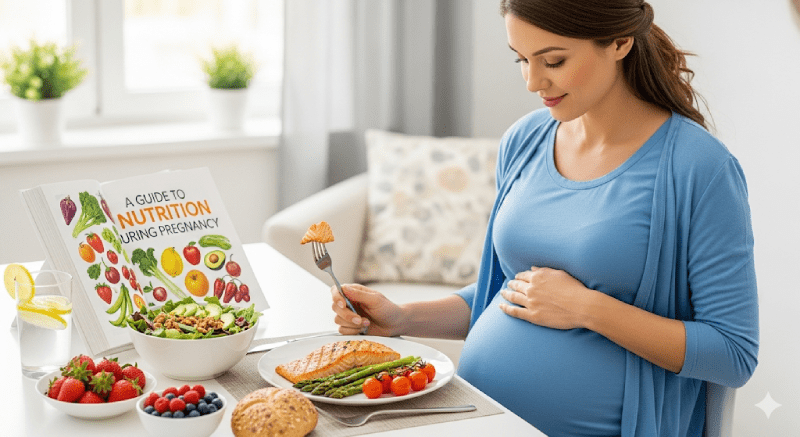Exercise can be an effective way of enhancing fertility in both men and women. Regular physical activity has been linked to improved fertility and conception rates. In addition, it helps reduce stress, lower your risk of miscarriage, and improve your overall health.
For women, regular exercise can help strengthen the uterus and reproductive organs, and regulate hormone production. This can lead to improved ovulation and an increase in conception rates. Exercise can also help with body weight and BMI, which are important for fertility.
For men, exercise helps to improve sperm count, motility, and morphology. It also helps to reduce stress and improve overall health. Avoiding exercises that involve direct strain on the testes, such as cycling, can help improve the chances of pregnancy.
When planning an exercise routine aimed at boosting fertility, three key points should be taken into account. Firstly, moderation and consistency are key, as too much exercise can impair fertility rather than boosting it. Secondly, while some exercise can be beneficial, it’s important not to overdo it as this can be detrimental. Lastly, it’s important to choose the best exercises for your individual needs.
For women, the best exercises for fertility include low-intensity activities such as yoga, walking, swimming, and cycling. Regular Pilates can also be beneficial as it helps to strength the muscles in the abdominal and pelvic area and provide improved posture. Avoid exercising for prolonged periods of time as this can reduce fertility.
For men, regular exercise can be beneficial for fertility, as long as it’s the right type. Regular cycling, running, and gym work can be beneficial, but you should avoid activities such as long distance running, contact sports, and heavy weight lifting as they can reduce fertility.
When trying to conceive, exercise can be an important tool. If you’re interested in using it to boost your fertility, it’s important to understand the right type and amount of exercise that’s best for you. Working with a personal trainer who is experienced in fertility can ensure that you get the most out of your exercise routine.
It may be good for you to have tests before you become pregnant and know if there are any problems that may prevent you from getting pregnant.
If you have any questions about this, contact us. As one of the world’s highest success rate IVF centers, we can offer you free consultation.
How does exercise affect fertility?
Regular and balanced exercise positively affects fertility by keeping body weight at an ideal level, balancing hormones, and reducing stress. Maintaining an ideal weight improves ovulation regularity and allows reproductive hormones to work more efficiently. Exercise also speeds up blood flow, ensuring more oxygen reaches the reproductive organs. This is a crucial factor that supports overall reproductive health.
Can too much exercise negatively affect fertility?
Yes, excessive and intense exercise can negatively affect fertility, especially for professional athletes. Burning too many calories and an excessively low body fat percentage can lead to hormonal imbalance and cause the menstrual cycle to stop (amenorrhea). This condition seriously reduces the chances of conception by preventing ovulation. Adopting a balanced approach is essential.
Which exercises are ideal when planning for pregnancy?
Ideal exercises for those planning for pregnancy are those that do not over-exert the body and reduce stress. Activities such as brisk walking, swimming, stationary cycling, light-paced running, and prenatal yoga are recommended. These exercises physically prepare your body and help you manage stress by keeping your heart rate at a moderate level.
How does exercise affect ovulation regularity?
Regular exercise is very beneficial for women with ovulation issues due to hormonal imbalances, such as polycystic ovary syndrome (PCOS). Exercise reduces insulin resistance and improves hormonal balance. This can regulate irregular or infrequent ovulation, thereby increasing the chances of conception.
What are the most suitable types of exercise for women?
The most suitable types of exercise for women consist of a combination of aerobic exercises and muscle-strengthening movements. Yoga and pilates increase flexibility and strengthen pelvic floor muscles. Cardio exercises like walking and swimming support heart health. The key is to listen to your body and not push yourself too hard.

What is the effect of exercise on male sperm quality?
For men, regular and moderate exercise positively affects sperm quality. Studies show that men who exercise regularly have a higher sperm count and better sperm motility than those with a sedentary lifestyle. However, be cautious with extremely intense exercises like cycling, as they can put pressure on the testes.
What are the exercise recommendations for those with fertility problems?
For individuals with fertility issues, exercise is critical for stress management and weight control. Low to moderate-intensity exercises can help improve hormonal balance and reduce inflammation. Walking, yoga, and light aerobics can provide both physical and mental support during this process.
Why is nutrition important along with exercise?
Proper nutrition is crucial to get the most out of exercise and support fertility. When the body does not get enough energy and nutrients, exercise can increase hormonal stress. A diet rich in regular protein, healthy fats, complex carbohydrates, and plenty of vitamins supports both exercise performance and reproductive health.
How does exercise reduce stress and how does this affect fertility?
Exercise reduces stress by lowering the level of the stress hormone cortisol and increasing the release of endorphins, known as “happiness hormones.” High stress levels can negatively affect ovulation and hormonal balance. Therefore, regular exercise helps you relax mentally and brings your body into the most optimal state for reproduction.
How many days a week should one exercise?
Exercising for 30-45 minutes at a moderate intensity, 3 to 5 days a week, is ideal. This schedule allows the body time to recover while maximizing the benefits of exercise. Exercising without overdoing it and exhausting the body will help you reach your fertility goals.
What approach should beginners take to exercise?
Beginners should start slowly and steadily. They can begin with 15-20 minute light-paced walks a few days a week and gradually increase the duration and intensity. Starting without straining your body helps you maintain motivation and reduces the risk of injury.
Can one exercise during the menstrual cycle?
Yes, exercising during the menstrual cycle is safe and can even help reduce cramps and bloating. Instead of high-intensity workouts, light-paced walking, yoga, or stretching movements can be preferred. Remember that your body may be more tired during this period, so adjust the exercise intensity accordingly by listening to yourself.
How does exercise help with weight control and how does this affect fertility?
Being both overweight and underweight has negative effects on fertility. Regular exercise helps maintain an ideal body weight, which ensures hormonal balance and regulates the ovulation cycle. A healthy weight is a critical factor in the process of preparing for pregnancy.
Are yoga and pilates beneficial for fertility?
Yoga and pilates are great exercises to support fertility. These disciplines offer both physical and mental benefits. Yoga reduces stress and increases blood flow. Pilates strengthens the abdominal and pelvic muscles, which provides better support for the reproductive organs.
Is high-intensity interval training (HIIT) suitable for fertility?
While high-intensity interval training (HIIT) is beneficial for general health, it is a topic that should be approached carefully for those planning a pregnancy. This type of exercise can create stress on the body and disrupt hormonal balance. Therefore, it is safer to prefer moderate-intensity cardio and strength exercises instead of very intense workouts.
Does running negatively affect fertility?
Regular and moderate-paced running can be beneficial for fertility. However, running very long distances or training at a professional level can put excessive stress on the body and disrupt hormonal balance. This can lead to menstrual irregularities, especially in women. Therefore, it is important to balance your running program.
How does exercise ensure hormonal balance?
Exercise ensures hormonal balance by reducing insulin resistance, lowering cortisol levels, and maintaining a healthy body weight. Especially in women with hormonal issues like PCOS, exercise can help regulate ovulation by increasing insulin sensitivity.
Which positions should be avoided during exercise?
For individuals undergoing fertility treatment or planning a pregnancy, it is important to avoid positions that compress the abdomen or put excessive pressure on the abdominal area during exercise. Such movements could potentially harm the reproductive organs. Therefore, comfortable and safe positions should be preferred.
Is it safe to lift weights when planning for pregnancy?
Yes, strength training with light weights and proper form is safe when planning for pregnancy. It can be beneficial for increasing muscle strength and preparing the body for childbirth. However, it is important to avoid very heavy loads and strenuous movements.
What is the relationship between exercise and sleep quality?
Regular exercise significantly improves sleep quality. Sufficient and high-quality sleep is vital for maintaining hormonal balance and supporting reproductive health. Exercise helps the body rest better, improving both your physical and mental health.
Can one exercise during IVF treatment?
Exercising is generally not recommended during IVF treatment. Especially after embryo transfer and during the period when the ovaries are enlarged, excessive movement should be avoided. While low-intensity activities like light walking are generally safe, it is best to follow your doctor’s instructions during this process.

At what signs should one stop exercising?
If you feel dizzy, short of breath, have chest pain, contractions, or unusual pain during exercise, you should stop immediately. These symptoms could be a sign that your body is not responding well to exercise or a health problem. If you have any doubts, it is important to consult your doctor.
What should one pay attention to before exercising?
Consult your doctor and get their approval before starting to exercise. Drink plenty of water, wear comfortable clothes, and do a light warm-up routine. These steps will help you get the most benefit from exercise and minimize the risk of injury.
How does being too thin affect fertility? How does exercise change this situation?
Being too thin can lead to hormonal imbalance and menstrual irregularities due to a low body fat percentage. This negatively affects fertility. In this case, exercise should focus on building muscle mass rather than burning calories. Light strength exercises and stretching movements are more recommended.
Why is exercise important for those with Polycystic Ovary Syndrome (PCOS)?
For women with PCOS, exercise is one of the most effective ways to control insulin resistance and body weight. Regular exercise can significantly increase fertility by correcting hormonal imbalances and improving ovulation regularity.
How does exercise strengthen the immune system?
Regular and light exercise strengthens the immune system and makes the body more resistant to diseases. This helps the body be healthier and stronger during the pregnancy planning process. However, excessive exercise can, on the contrary, weaken the immune system.
What is the relationship between exercise and sexual life?
Exercise can positively affect sexual life by making the body more energetic and fit. At the same time, the increased self-confidence and reduced stress that come with exercise can increase couples’ sexual intimacy and thus the chances of conception.
What is the effect of exercise on body temperature and its importance for fertility?
Body temperature rises during exercise. An excessively high body temperature can negatively affect sperm quality. Therefore, it is recommended for men to avoid extremely hot environments or very intense exercise. It is important to drink plenty of water during exercise to keep body temperature under control.
Should the exercise program be personalized?
Yes, every individual’s physical condition, health history, and lifestyle are different. Therefore, an exercise program must be planned specifically for the individual. Working with a healthcare professional or exercise physiologist can help you create the most suitable program for your fertility goals.
How much water should be drunk while exercising?
Drinking enough water during exercise and throughout the day is very important for the body to function properly. Dehydration can negatively affect the body’s overall functions. Make sure to drink water regularly before, during, and after exercise.



